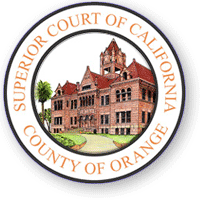1/28/2009
California Appellate Court Publishes Anti-Camera DecisionCalifornia appellate court finally publishes decision on red light camera warning periods ignored by California cities.

Cities in California could face a class action lawsuit forcing the refund of thousands of illegally issued red light camera fines following the publication earlier this month of an appellate decision in favor of a local motorist. The California Superior Court's Appellate Division canceled a photo ticket issued to Orange County resident Thomas Fischetti because the city of Santa Ana failed to provide a thirty-day warning period before issuing tickets at each intersection equipped with a red light camera. Santa Ana, with the support of a trial judge, claimed that it was good enough to have a thirty-day warning period at a single intersection in the city.
"The trial court's determination that the city complied with Section 21455.5(b) is inconsistent with the structure and purpose of the statute as a whole," Appellate Division Judge Stephen L. Perk decided. "From the perspective of the motorists for whom the statutory requirements were intended to provide protection, it would not make sense for the geographic scope of the thirty-day warning period to be determined arbitrarily by the size of the municipality operating the automated enforcement system."
This was not the first time that the courts had decided this issue in Fischetti's favor. In 2005, the California Supreme Court upheld a previous appellate division decision finding Fischetti not guilty because the city of Costa Mesa, like Santa Ana, failed to provide a thirty-day warning period at each intersection with a red light camera (read opinion). Although final, that decision could not be used as a precedent in California because Fischetti, who represented himself in court, did not realize that courts can withhold publication of decisions, especially when no request for publication was made. Three years later, he would not repeat that mistake.
On February 6, 2008, a red light camera claimed that Fischetti's 1993 Lexus entered the intersection of Pullman and Dyer in Santa Ana a split-second after the light had turned red. Fischetti called and spoke with Laura Rossini, Deputy City Attorney of Santa Ana, to explain that the city was in violation of the 2005 Fischetti decision. He was shocked at the city's attitude toward the law.
"She paid little homage to the appellate decision requiring a grace period in my Costa Mesa case," Fischetti told TheNewspaper. "It was like, despite the logical construction of the opinion, the previous decision was meaningless. At that point I felt I needed to finish what I intended to do in Costa Mesa."
Even Fischetti with his two victories was not the only individual to win on this question. Both the city of Santa Ana and Court Commissioner Glenn Mondo, who found Fischetti guilty in 2008, had been overturned on this very point. On August 28, 2008, the appellate division entered an identical ruling declaring another motorist's $366 fine in Santa Ana invalid because of the lack of a warning period. The decision was not published.
The significance of publication is clear from the 2005 pleas of the California League of Cities to overturn the Costa Mesa decision. The League told the state supreme court that the decision, if allowed to stand, meant trouble for the sixty-six California cities that used red light cameras at the time. None of them provided the warning period prescribed by the law.
"The respondent court's legal interpretation of the statute creates a question of first impression and implicates a factual situation likely to be the subject of persistent litigation in the future by all cities with automated enforcement systems," Santa Ana's Assistant City Attorney Paula Coleman wrote on behalf of the League of California Cities in March 2005. "The impact on cities and the courts with respect to ticket appeals and potential refunds could be enormous should respondent court's analysis be allowed to stand and other courts follow suit."
The California Supreme Court upheld the 2005 Fischetti decision, the wording of which is substantially identical to the latest ruling which is available in a 1mb PDF file at the source link below.


